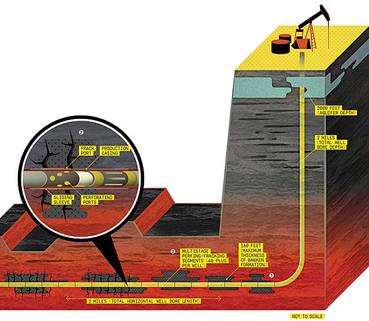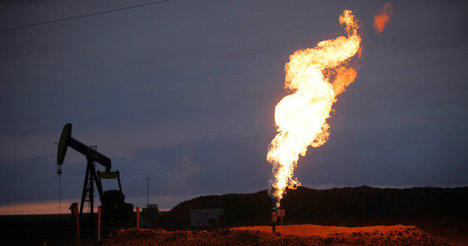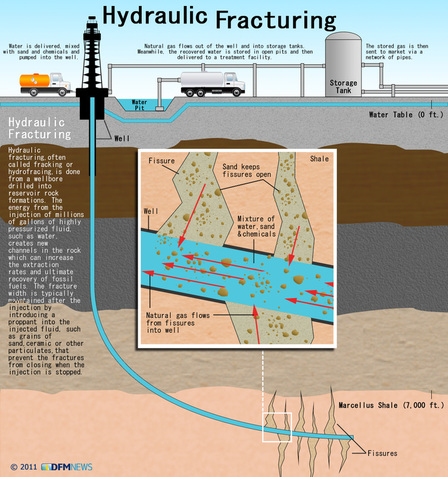|
Learning Goals •Understand the ethic of Innovation and concept of mutation •Think about whether you might integrate these ideas into your sense of place essay or visual piece….How does ENERGY impact “place”? Journal Prompt #3: Respond to these questions from yesterday's partner discussion
Agenda 1. Get out your notes from yesterday and review your responses. 2. Discuss as a whole class your notes on yesterday's Envt. Justice and Sustainability case study TURN YOUR NOTES IN! Guest Speaker/Chemistry today!
0 Comments
FOR FRIDAY'S HOMEWORK: ***CHANGE THE 3rd LINK to THIS ONE: http://www.huffingtonpost.com/2013/02/28/fukushima-cancer-rates-risks_n_2779729.html (This article discusses the cancer risks after the Fukishima nuclear power plant explosion) ***Use this source to figure out how health risks will be controlled: http://pinonridgemill.com/operations.html Learning Goals:
Journal #2: Watch this video on the concept of NIMBY-ism. What is your reaction? How did this video expand your thinking on the intersection between energy production and one's sense of place? Agenda 1. Intro to today's Case Study:
2. In Small groups, work on the Case Study on Environmental Justice and Sustainability (you need to make this up if you miss class today) 3. Class Discussion on the case study HOMEWORK: Town Hall Debate prep for Friday! Josh D's Edmodo contribution: Cool new turbine technology: Josh wrote, "this is a cool new wind turbine that is cheaper, more efficient, and mobile. making great for disaster relief and remote areas. because it is deployed at high elevation it is subject to winds about five times as fast as surface winds. It can also be used for things such as providing wifi to large areas with is high altitude vantage point. A really cool innovation" Objectives: 1. Apply your understanding of environmental ethics to Rachel Carson’s speech and Leopold’s Land Ethics 2. Understand the difference between two types of environmental ethics: Environmental Justice and Sustainability. TODAY's BIG QUESTION: Can we protect pristine wilderness areas AND make sure low-income communities are safe from environmental injustices/health hazards? Agenda: 1. Finish "Land Ethic" discussion and review for the test 2. Test 3. Work Time: Pinon Ridge Mill Town Meeting prep notes TOPICS: The Land Ethic, Justice and Sustainability
Goals:
JOURNAL STARTER: In your inspiration journal!
Agenda: 1. Announcements/Class Biz
2. Listen to "Everything is Connected" Podcast, episode 1 3. Finish our discussion of "The Land Ethic" 4. Period 2: Guest Speaker, Patrick with Western Climate Initiative Western Climate Initiative, Inc. (WCI, Inc.) is a non-profit corporation formed to provide administrative and technical services to support the implementation of state and provincial greenhouse gas emissions trading programs Homework: Read the 4 article links and complete the note-taking form found HERE in preparation for Friday's town hall meeting/debate on the Pinon Ridge Uranium Mill. This is meant to help you evaluate the various issues (economic, social, environmental) at stake in making decisions about energy development as applied to one specific community. REMINDERS:
Learning Goals
Starter:
Agenda: 1. Helpful resources on explaining the Land Ethic: Click Here 2. Finish the powerpoint lecture on environmental ethics (Starting with APPLYING the ethical framework) 3. Review The Land Ethic Discussion Questions and respond to questions 1, 2, 4, 5, 6 in your starters. 4. Discuss "The Land Ethic" as a whole class 5. Listen to "Everything is Connected" Podcast, episode 1 or watch the video Emily has planned for us! 6. Scholarship Opportunity for all Durango Juniors Homework:
Starter: Ted Talk: "Paper Beats Plastic? How to rethink environmental folklore" Discussion: - What are her main points? - What is your reaction to her talk? - How could you apply her spirit of innovation to ANY job you pursue? (education, healthcare, engineering, environmental consulting, coaching, business, etc....) Answers to yesterday's questions: (Props to Eric Wanless with Rocky Mountain Institute) a. If the middle east cut us off from oil, would we still be self-sufficient? Oil is a global market, we don't get to pick and choose where our oil comes from or where it goes... that being said, with tar sands oil (quite dirty), we are not that dependent on OPEC/middle east for the world's oil. Canada is now in the top 5 countries as far as proven reserves, and if you look at production of oil, we're not that dependent on OPEC. Self sufficient implies that we would be able to produce all the oil we need domestically, which ins't true. We could prob do this if you include Canada and Mexico. But... as I noted before, we cannot choose where our oil goes or comes from on the global market - it is totally fungible. b. Why are we still using oil from the middle east? See note on not being able to choose where our oil comes from. When you buy oil as a refinery, it typically comes on a tankers with crude from all over the world... Saying you only want oil from a certain country is like saying "I only want to swim in ocean water that came from run-off from Costa Rica." c. What is realistic possibility of using more renewable energy and weaning off oil/gas/fossil fuels? Very possible. Likely that we will invest heavily in natural gas transportation in the near-term. Light-weighting vehicles and efficient vehicles, and smart development to reduce vehicle miles travelled can get us a long way. Transition to biofuels possible in concert with that. See http://www.rmi.org/transportation for specifics. d. What type of waste and energy is involved in producing solar panels? See this article. It highlights the energy required and the toxic wasted produced from solar panel production methods but also does make this point: "The roughly 20-year life of a solar panel still makes it some of the cleanest energy technology currently available. Producing solar is still significantly cleaner than fossil fuels. Energy derived from natural gas and coal-fired power plants, for example, creates more than 10 times more hazardous waste than the same energy created by a solar panel, according to Mulvaney". Agenda: 1. Continue the ppt on envt ethics from yesterday 2. Work Time:
Homework Reminder: · Essay refinements due tomorrow · "Land Ethic" reading due tomorrow · Quiz on Tuesday that applies concepts of ppt and "Land Ethic" to a speech by Rachel Carson Learning Goals:
Starter:1. ***Get out your "Bakken Business" readings for me to check annotations*** 2. Discuss with a partner: Partner A: What is your understanding of the project at this point? Summarize your idea in as much detail as you can summon as if you were explaining this project to potential donors to our school. Partner B: Fill in the gaps. Add details about the project your partner neglected. Use the project overview document and/or the white board on the side wall to assist. AGENDA 1. Finish Stations activity from yesterday 2a. Get out your copy of "Bakken Business" and complete Question #1 on this handout with a partner. 2b. Whole class Discussion of homework assignment "Bakken Business": BIG QUESTION: Is the oil extraction in the Bakken progress? 3. Read the first page of the ppt note-taking form and follow the directions to complete page 1. (You'll need to DOWNLOAD this form if you're taking notes electronically) 4 Ashley’s ppt lecture “Introduction to Environmental Ethics” 5. Introduction to homework reading: "The Land Ethic" by Aldo Leopold, vocab overview + discussion questions Homework: Read and annotate "The Land Ethic" by Friday QUIZ Heads Up! (Tuesday of next week) IMPORTANT DETAILS ABOUT BURNING NATURAL GAS (as mentioned in "Bakken Business") NEW TOWN, N.D. — Across western North Dakota, hundreds of fires rise above fields of wheat and sunflowers and bales of hay. At night, they illuminate the prairie skies like giant fireflies. They are not wildfires caused by lightning strikes or other acts of nature, but the deliberate burning of natural gas by oil companies rushing to extract oil from the Bakken shale field and take advantage of the high price of crude. The gas bubbles up alongside the far more valuable oil, and with less economic incentive to capture it, the drillers treat the gas as waste and simply burn it. Every day, more than 100 million cubic feet of natural gas is flared this way — enough energy to heat half a million homes for a day. The flared gas also spews at least two million tons of carbon dioxide into the atmosphere every year, as much as 384,000 cars or a medium-size coal-fired power plant would emit, alarming some environmentalists. All told, 30 percent of the natural gas produced in North Dakota is burned as waste. No other major domestic oil field currently flares close to that much, though the practice is still common in countries like Russia, Nigeria and Iran. Honors Book Club Lunch Meeting Agenda: Go over THIS helpful packet of reminders and resources * Reminders on Book Club requirements and where resources are located *Half the Sky content is tough! Deadlines * Project Proposal due April, 25th * Half the Sky seminar is on Friday, May 16th *Seminar is due by midnight on Thursday, May 15th (emailed to Ashley) or you CANNOT participate in the seminar and will be stripped of your honors credit! * Half the Sky project with the rubric and any necessary artist statement or reflection attached due on Tuesday, May 20th  "This is the most beautiful place on earth. There are many such places. Every man, every woman, carriers in heart and mind the image of the ideal place, the right place, the one true home, known or unknown, actual or visionary. A house-boat in Kashmir, a view down Atlantic Avenue in Brooklyn, a gray gothic farmhouse two stories high at the end of a red dog road in the Allegheny Mountains, a cabin on the shore of a blue lake in spruce and fir country, a greasy alley near Hoboken waterfront, or even possibly for those of less demanding sensibility, the world to be seen from a comfortable apartment high in the tender, velvety smog of Manhattan, Chicago, Paris, Tokyo, Rio or Rome- there's no limit to the human capacity for homing sentiment" -- Edward Abbey, Desert Solitaire, pages 1-2. Starter Task: Free write or draw a place that you find beautiful or that holds significant meaning to you. Think about why you find it beautiful or why it is important to you. Learning Goal: Understand the basic elements of our last project, "Energy and Place" Agenda: 1. Energy and Place Project Overview + Time for Q and A Organization of process work + Google doc folder orientation 2. Group Activity--> Stations: to introduce various concepts related to our project. 3. Ashley’s read-aloud of her example personal sense of place essay.
4. Critique: Does my essay meet the project task description? How so? Reminders:
|
Archives
December 2017
CategoriesAshley CarruthHumanities 11 Teacher at Animas High School |



 RSS Feed
RSS Feed
